Mohammad Hatami
Status Updating with an Energy Harvesting Sensor under Partial Battery Knowledge
Apr 12, 2022
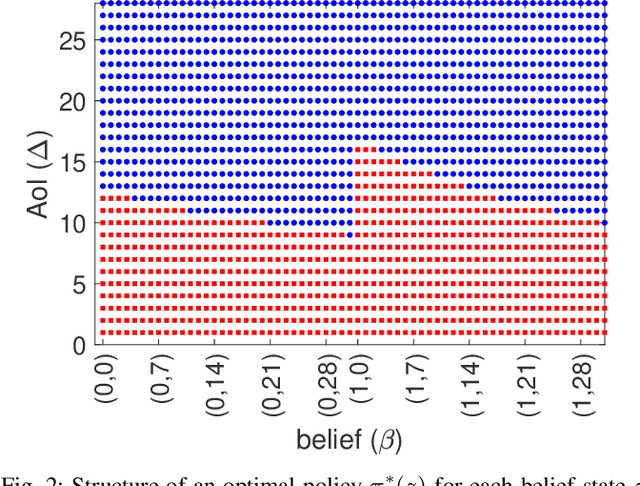
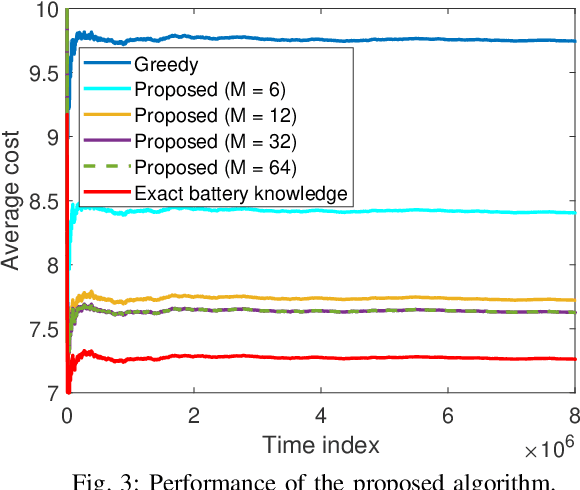

Abstract:We consider status updating under inexact knowledge of the battery level of an energy harvesting (EH) sensor that sends status updates about a random process to users via a cache-enabled edge node. More precisely, the control decisions are performed by relying only on the battery level knowledge captured from the last received status update packet. Upon receiving on-demand requests for fresh information from the users, the edge node uses the available information to decide whether to command the sensor to send a status update or to retrieve the most recently received measurement from the cache. We seek for the best actions of the edge node to minimize the average AoI of the served measurements, i.e., average on-demand AoI. Accounting for the partial battery knowledge, we model the problem as a partially observable Markov decision process (POMDP), and, through characterizing its key structures, develop a dynamic programming algorithm to obtain an optimal policy. Simulation results illustrate the threshold-based structure of an optimal policy and show the gains obtained by the proposed optimal POMDP-based policy compared to a request-aware greedy (myopic) policy.
On-Demand AoI Minimization in Resource-Constrained Cache-Enabled IoT Networks with Energy Harvesting Sensors
Jan 28, 2022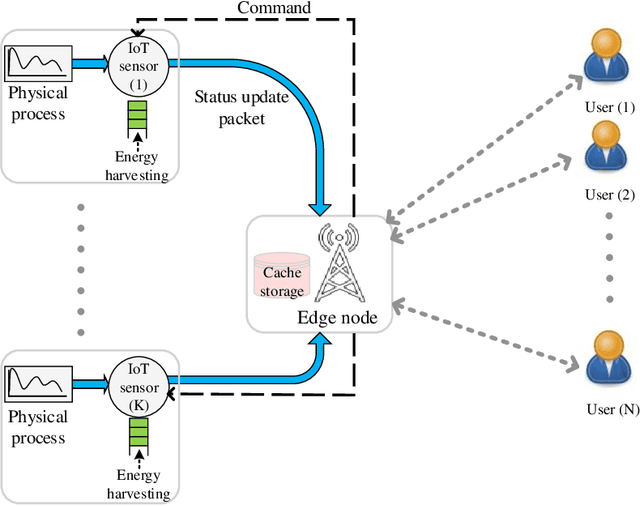

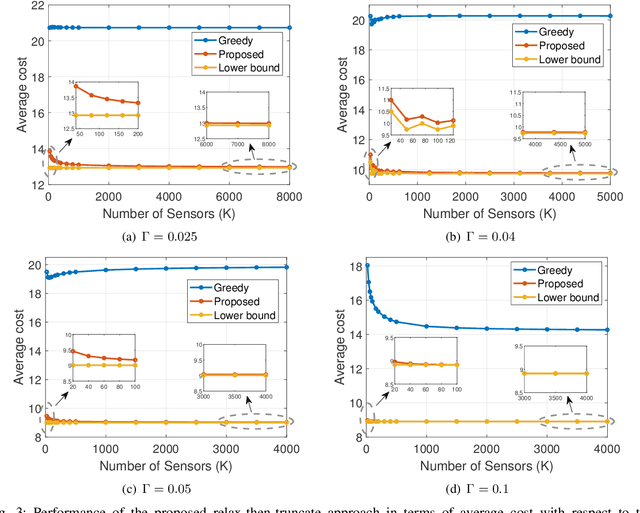

Abstract:We consider a resource-constrained IoT network, where multiple users make on-demand requests to a cache-enabled edge node to send status updates about various random processes, each monitored by an energy harvesting sensor. The edge node serves users' requests by deciding whether to command the corresponding sensor to send a fresh status update or retrieve the most recently received measurement from the cache. Our objective is to find the best actions of the edge node to minimize the average age of information (AoI) of the received measurements upon request, i.e., average on-demand AoI, subject to per-slot transmission and energy constraints. First, we derive a Markov decision process model and propose an iterative algorithm that obtains an optimal policy. Then, we develop an asymptotically optimal low-complexity algorithm -- termed relax-then-truncate -- and prove that it is optimal as the number of sensors goes to infinity. Simulation results illustrate that the proposed relax-then-truncate approach significantly reduces the average on-demand AoI compared to a request-aware greedy (myopic) policy and also depict that it performs close to the optimal solution even for moderate numbers of sensors.
Age-Aware Status Update Control for Energy Harvesting IoT Sensors via Reinforcement Learning
Apr 27, 2020
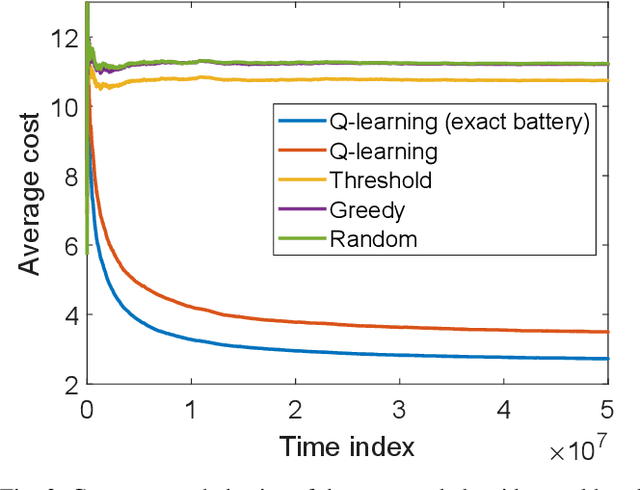
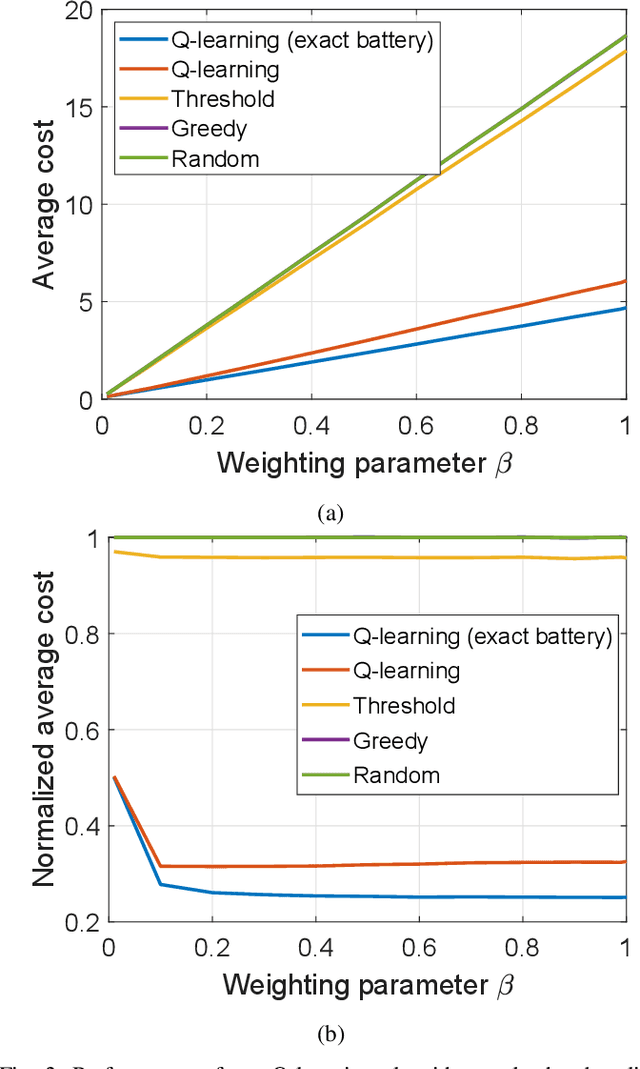
Abstract:We consider an IoT sensing network with multiple users, multiple energy harvesting sensors, and a wireless edge node acting as a gateway between the users and sensors. The users request for updates about the value of physical processes, each of which is measured by one sensor. The edge node has a cache storage that stores the most recently received measurements from each sensor. Upon receiving a request, the edge node can either command the corresponding sensor to send a status update, or use the data in the cache. We aim to find the best action of the edge node to minimize the average long-term cost which trade-offs between the age of information and energy consumption. We propose a practical reinforcement learning approach that finds an optimal policy without knowing the exact battery levels of the sensors.
 Add to Chrome
Add to Chrome Add to Firefox
Add to Firefox Add to Edge
Add to Edge